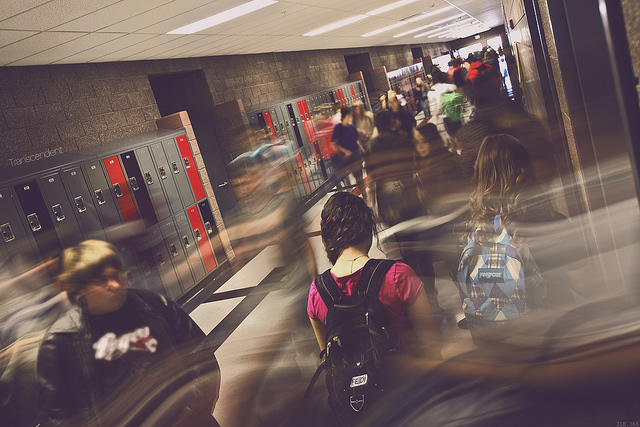Yik Yak is the newest vehicle for teen cyberbullying
Yik Yak didn’t intend to be the newest way for teens to cyberbully their peers. But the app, meant to act as a virtual bulletin board for any 1.5 mile radius, has unwittingly become the next big gossip site for high school and even middle school students.
Yik Yak was launched in December by recent college graduates Brooks Buffington and Tyler Droll and is currently available for iOS and Android. The app lets users vote on or reply to any post (or “Yak”) in up to 200 characters— all anonymously. You can see where this could get dangerous.

From Adam Metcalf.
Yik Yak’s creators hoped the app would catch on at college campuses, but despite restricted access on around 130,000 primary and secondary school campus, younger students are using the service. In a New York magazine piece titled “A Gossip App Brought My High School to a Halt,” Will Haskell described how the app sent several of his classmates at Staples High School in Westport, Connecticut home in tears. He writes:
In the period after lunch, everyone was waiting for the next post. Feeds were refreshed; new batches of unsigned obscenities entertained the student body. “I remember sitting there in class refreshing the page, waiting for someone to say something horrible and awful about me,” said one junior girl. Ms. S. was fully aware of the cause for her European History class’s distraction, as apparently many teachers had downloaded and perused the app during their lunch period. With each post, another girl left class to cry in the bathroom, vent to her guidance counselor, or drive home. “I was shocked, mortified, and embarrassed,” M. says. “I then called my mom and told her I was leaving school.”
Unlike typical bulletin board fodder, like lost and found announcements or ads for dog walking, the Yik Yak posts, fueled by anonymity, devolved into cruel name calling.
Similar outbreaks of Yik Yak bullying in Connecticut forced Fairfield Public Schools district officials to ask Yik Yak to block access to the app within all of its campuses, including three middle schools and two high schools.
Abuse of the app has also led to arrests. In California, a 17-year-old was charged with making a terrorist threat after allegedly posting that a shooting would occur at two area high schools. And in Alabama, a 16-year-old and a 14-year old were similarly charged after using Yik Yak to announce upcoming shootings at local high schools.
Droll believes keeping kids off the app is the best way to prevent such incidents. “We’re proactively trying to keep high schoolers off the app,” he said. “It’s being used very well at colleges. We think psychologically high schoolers aren’t ready to use our app.”
At the college level, the app has been used to raise money for a student diagnosed with cancer, a far cry from the brutal cyberbullying popular with high school users.
Before apps like Yik Yak become a problem serious enough to bring an entire high school to a halt, educators should take the time to teach their students about digital responsibility. Recognizing the harm caused by cyberbullying might help push high school students along the path to becoming mature, digitally responsible internet users.
